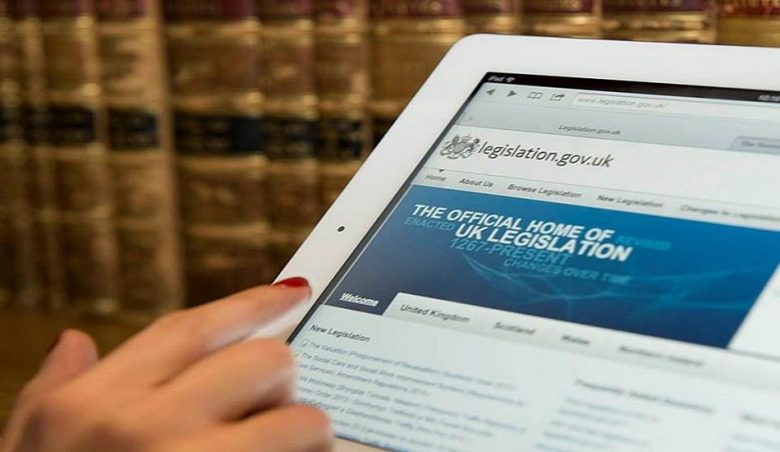Although I am only a first year law student, I have already had to use my Statute Book and the law resources online to research cases and particular legislation. This is made easier because my university subscribes to the well known online legal databases such as Lexis Nexis, Justis and Westlaw. These resources are helpful because it becomes much easier to find the text of the legislation as well as any ammendments and annotation.
Unfortunately, these resources are subscription based i.e. they will probably cost a hell of a lot of money to use. Just looking on the Lexis Nexis website right now I see that the prices aren’t even available – you have to contact someone first. That’s always a bad sign!
I read The Guardian and there has been an ongoing campaign in their technology supplement called “Free Our Data”. This is particularly focused on data such as post codes or Ordinance Survey maps, but I recall them also mentioning making available the law which applies to us all i.e. legislation. Already Parliament (through a fancy new website) and the DCA provide access to recent legislation as well as bills currently going through Parliament. There is also online access to Hansard and the particularly useful theyworkforyou.com. But there is no centralised source that can provide you with access to the full text of all the legislation along with details of amendments etc etc.
That’s where the Statute Law Database comes in.
I have heard (even mentioned in one of my lectures last week) that this database has been planned for many, many years but it is now finally almost ready for access by the public. For free! It is currently in phase 3 of the public testing where a small number (under 100 I think) of people have been given access to test out the features and provide feedback – I am one of those people.
I was given access on 2nd October and since then I have been playing around with it when I got the chance. Over the weekend I actually got the opportunity to use it “for real” when preparing some work for a seminar this week. I was reading up on a case (R v Brown [1994] 1 AC 212 (HL)) which mentioned two sections of the Offences Against the Person Act 1861. I didn’t know what was contained within those sections so I used the SLD to find out.
Originally I was going to write up my “review” I wanted to include some screenshots but I was asked to wait until it actually goes public because:
“We are currently working with our supplier to make some screen changes and this is likely to be a process that will take us up to completion of the Pilot. One of the reasons for us running this as a pilot is to ensure that when we do go live we are presenting a facility that we have signed off and that is why I would prefer existing public facing systems, such as your own website, to not display images at the moment.”
The interface looks fine to me already – clean and simple – but this is fair enough and so instead I shall describe it.
After logging in (login will be removed on the launch since it will be available freely) you can search for a specific title, year and number within a number of different legislation types – and there are a lot of types. From UK General Public Acts to an unrevised NI Order in Council and from Church of England measures to Welsh Statutory Instruments, it seems that the SLD covers it all. You can also view all of these in alphabetical or chronological order as well as conduct detailed searches on the database.
Once you have located a document you wish to view, you will be taken to what could be called a section overview of the act. You can then click on the title to view that section, or the title of the whole document to view the entire thing in full.
The SLD also provides a list of the ammendments that have been made to the document, or that a document makes to another document. Version history is also available so you can see how many versions there have been and how they differ from one another.
But as with anything, there are a few problems. My biggest issue is, as mentioned on Binary Law, addressability. When I was conducting the research on the Offences Against the Person Act I needed to cite my source. Unfortunately, the URL for section 20 looks like this:
http://www.statutelaw.gov.uk/content.aspx?LegType=All+Legislation
&title;=offences+against+the+person&Year;=1861&searchEnacted;=0
&extentMatchOnly;=0&confersPower;=0&blanketAmendment;=0
&sortAlpha;=0&TYPE;=QS&PageNumber;=1&NavFrom;=0
&parentActiveTextDocId;=1043854&ActiveTextDocId;=1043873
&filesize;=4415
which is not good to paste into a footnote. However, I was actually able to reduce this to:
http://www.statutelaw.gov.uk/content.aspx?ActiveTextDocId=1043873
and that was perfect for my work. But it is a pain to have to do that and each document really needs a “permalink” which is short and can be copied into footnotes and references. This is something that the subscription legal databases like Lexis Nexis also fall down on.
Another issue I had was finding ammending legislation. Because I thought it was funny (hah hah), I looked at section 17 of the Offences Against the Person Act which is listed as:
“Impeding a person endeavouring to save himself from shipwreck.”
This was originally punished by
“penal servitude for life”
However, this was ammended “Words repealed by Statute Law Revision (No. 2) Act 1893 (c. 54)”. I tried to find out what this Act said but I was unable to find it in the SLD nor using Google. Because of this I was forced to use Lexis Nexis to view the Offences Act which explained that:
“See further, the punishment for a person liable to penal servitude is now imprisonment for a term not exceeding the maximum term of penal servitude for which a sentence could have been passed immediately before 18 April 1949: the Criminal Justice Act 1948, s 1(1).”
This is probably something that as a qualified lawyer I would have known – the change by the Criminal Justice Act – but as a new student I did not. Nor would I have known if I was a member of the general public. Whilst this may be out of the scope of the SLD it is nevertheless a problem I faced.
It is fun to be involved in a project like this, even at the final testing stages, because I am possibly the only law student on the scheme and law students are definitely going to be making use of the service. I hope the changes I think are necessary and those suggested by other people (Binary Law) are made for the final launch, due in December.




